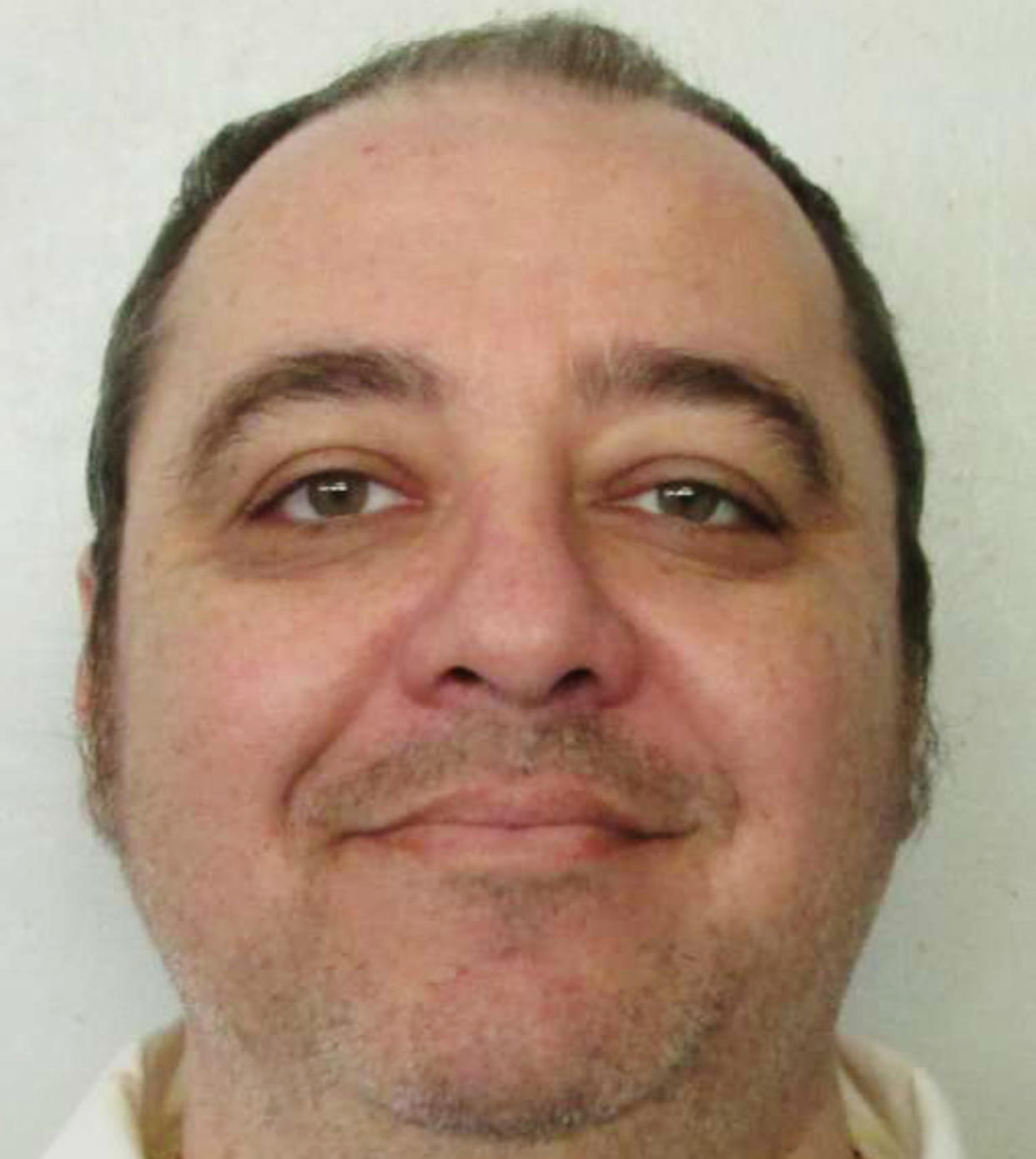Supreme Court rejects Alabama death row inmate's lethal gas claim
WASHINGTON — The Supreme Court on Wednesday rejected an Alabama death row inmate’s last-minute request for a stay of execution, moving him a step closer to being put to death using an untested method: nitrogen gas.
Kenneth Smith, sentenced to death for murdering Elizabeth Sennett in 1988, objected to being executed by nitrogen hypoxia because of the potential for the state to botch the procedure. He alleged it would violate his right to be free of cruel and unusual punishment under the Eighth Amendment to the Constitution.
He is scheduled to be executed on Thursday.
The brief court order simply noted that Smith's application was denied. No justices publicly dissented.
Smith has also filed a second attempt to block the execution raising different legal issues.
In that case, the Atlanta-based 11th U.S. Circuit Court of Appeals ruled against him on Wednesday evening. Smith would have to file another emergency application at the Supreme Court in that case to have any chance at preventing the execution from going ahead.
Alabama Attorney General Steve Marshall said in a statement to NBC News in reference to the Supreme Court order that the state "remains confident that the execution, and long-awaited justice, will proceed as planned."
Smith's lawyers declined to comment.
In court papers, they said nitrogen hypoxia has never been used to execute anyone in the United States. The last time an inmate was put to death using any form of lethal gas was in 1999, according to the Death Penalty Information Center.
The Supreme Court in May last year rejected an earlier attempt to put Smith to death by lethal injection.
In the case before the Supreme Court, Smith had argued that the state’s previous effort to execute him in November 2022 raised questions about its ability to use the new method effectively. Then, officials called off the execution after struggling to insert an intravenous line before the death warrant expired at midnight.
A new attempt would be “cruelly willful” and effectively constitute torture, his lawyers argued.
They said in their emergency request that if Alabama is allowed to go ahead with the execution it would be “only the second time in U.S. history that a state follows through with a second execution attempt after a previous, failed attempt.”

Marshall pointed out in court papers that in persuading the Supreme Court not to allow the scheduled execution last year to go ahead, Smith had said he would prefer to be executed using lethal gas.
“Such allegations cannot fairly be the basis for relief now — after Smith litigated successfully for the method of execution he will receive,” Marshall wrote.
Smith lost in Alabama state courts, including the Alabama Court of Criminal Appeals. The Alabama Supreme Court then declined to hear his case, prompting Smith to turn to the U.S. Supreme Court.
Nitrogen hypoxia causes death by forcing the inmate to breath only nitrogen, depriving the person of oxygen. The state’s execution protocol says a mask would be fitted to the inmate’s face and nitrogen gas administered until death.
Two other states, Oklahoma and Mississippi, have also approved the use of nitrogen hypoxia. The small number of states that routinely execute people generally use the lethal injection procedure but have faced challenges to obtaining the necessary drugs.
Smith’s lawyers and death penalty opponents have said there are risks in using the method including the possibility of Smith being left in a vegetative state or choking on his own vomit. Some have also raised the possibility of danger to others in the execution chamber if there is a gas leak.
The Supreme Court, which has a 6-3 conservative majority, is generally skeptical of last-minute stay requests brought by death row inmates and has also made it more difficult for prisoners to bring challenges to the method of execution.
In 2019, the court ruled against a convicted murderer in Missouri seeking to die by lethal gas instead of lethal injection because of a rare medical condition, saying that prisoners were not guaranteed “a painless death.”
Death penalty proponents have been critical of lawyers making last-minute claims in an effort to delay executions. During the oral argument in a 2015 case, Justice Samuel Alito referred to it as “a guerrilla war against the death penalty.”
